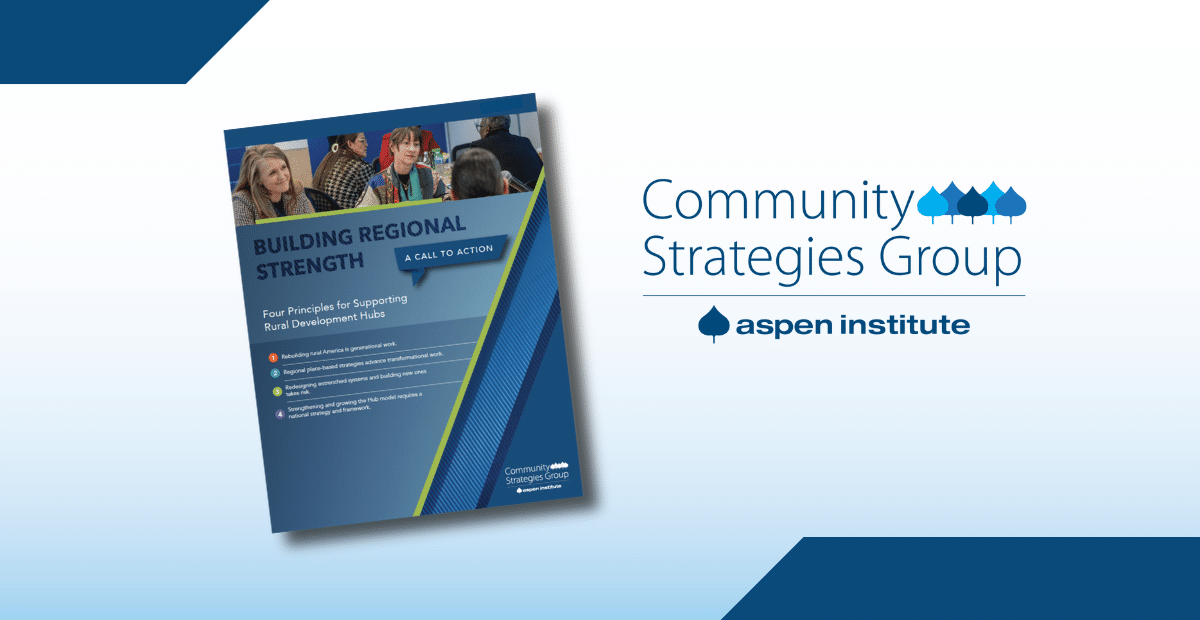View this Publication
Authors

Marybeth Gasman is the Samuel DeWitt Proctor Endowed Chair and Distinguished Professor in the Graduate School of Education at Rutgers University. She is also the Executive Director of the Rutgers Center for Minority Serving Institutions and serves on the board of trustees of two Historically Black Colleges and Universities—Paul Quinn College and Morris Brown College.

Levon T. Esters is a Professor at Purdue University and the Associate Dean for Diversity, Equity, Inclusion, and Faculty Affairs at Purdue’s Polytechnic Institute. He is a graduate of two Historically Black Colleges and Universities: Florida A&M University and North Carolina A&T State University.

Alice Ginsberg is a Senior Research Specialist at the Rutgers Center for Minority Serving Institutions. She is the author of several books related to culturally relevant pedagogy, practitioner-based research, teacher education, and Minority Serving Institutions.
Minority Serving Institution (MSI) is an umbrella term to describe universities and colleges that enroll a significant percentage of minority students. MSIs educate a disproportionate percentage of students, including low-income, first-generation, and part-time students, and provide entry into the middle class for many individuals and their future families. These institutions are located nationwide in nearly every state – in urban, suburban, and rural areas.
MSIs serve as anchor institutions in many places, providing greatly needed services to the community – including childcare, community development initiatives, and adult education and training.
MSIs, in general, do not get enough recognition for being innovative institutions that, in many cases, are at the forefront of designing new models of teaching and learning, scholarship, research, and leadership development – models that can be broadly instructive and adapted across higher education.
In our latest research brief, Building Trust and Visibility Through Community-Based Participatory Research at Rural Minority-Serving Institutions, authors Marybeth Gasman, Alice Ginsberg, and Levon T. Esters explore how rural MSIs and approaches to community-based participatory research can be used to better understand MSIs’ nature and practices.
The authors consider what community-based participatory research looks like in the context of rural MSIs and present actionable recommendations for researchers and practitioners interested in furthering this work.
More specifically, the brief highlights who is involved in community-based participatory research, how to level hierarchies and build trust, asset-based research, data sharing, and triangulation, and who benefits from community-based participatory research.
Thrive Rural Framework Connection: This brief examines some of the driving forces and conditions – building blocks – that determine Rural Voice and Power, specifically ensuring a rural voice in design and action, the alignment of rural fields and actors, and an accurate rural narrative.
Researchers produce knowledge that plays a role in shaping culture, policy, and in effect, the distribution of resources. To realize the potential of rural communities, the network of higher education institutions and their research practices benefit from centering and grounding the production of knowledge in rural voices and concerns and addressing power imbalances in research and practice. Minority Serving Institutions play a crucial role in this change strategy.
Thrive Rural Framework
This brief examines some of the driving forces and conditions – building blocks – that determine Rural Voice and Power, specifically ensuring a rural voice in design and action, the alignment of rural fields and actors, and an accurate rural narrative. Researchers produce knowledge that plays a role in shaping culture, policy, and, in effect, the distribution of resources. To realize the potential of rural communities, the network of higher education institutions and their research practices benefit from centering and grounding the production of knowledge in rural voices and concerns and addressing power imbalances in research and practice. Minority Serving Institutions play a crucial role in this change strategy.
Summary
This brief explores rural Minority Serving Institutions (MSIs) and approaches to community-based participatory research that can be used to better understand MSIs’ nature and practices. We consider what community-based participatory research looks like in the context of rural MSIs and present actionable recommendations for researchers and practitioners interested in furthering this work. More specifically, we discuss who is involved in community-based participatory research, how to level hierarchies and build trust, asset-based research, data sharing, and triangulation, and who benefits from community-based participatory research.
What Are Minority Serving Institutions (MSIs)?
Minority Serving Institution is an umbrella term to describe universities and colleges that enroll a significant percentage of minority students. They include Historically Black Colleges and Universities (HBCUs), Tribal Colleges and Universities (TCUs), and many others with some form of federal recognition for their engagement with minority students and populations.
What Is Community-Based Participatory Research?
Community-based participatory research describes an approach to creating knowledge and understanding where researchers and community members collaborate as equals in the research process.
Minority Serving Institutions
Universities and colleges are producers of knowledge and play an important role in shaping culture, policy, political agendas, and in many ways, the flow of resources to communities. To increase the potential for those living in rural communities, as well as the vibrancy of these communities, researchers can and should center rural voices, ground the production of knowledge in these voices, and address power imbalances in research and practice. Minority Serving Institutions (MSIs) play a crucial role in this strategy for empowering rural communities.
There are over 700 Minority Serving Institutions (MSIs) in the United States.¹ They educate nearly 24 percent of all students and over 40 percent of students of color.² These institutions include Historically Black Colleges and Universities (HBCUs), Hispanic Serving Institutions (HSIs), Tribal Colleges and Universities (TCUs), Asian American and Native American Pacific Islander Serving Institutions (AANAPISIs), and Predominantly Black Institutions (PBIs), to name a few.³
MSIs educate a disproportionate percentage of students, including low-income, first-generation, and part-time students. They provide entry into the middle class for many individuals and their future families. These institutions are located throughout the nation in nearly every state – in urban, suburban, and rural areas.⁴ In many locations, they serve as anchor institutions, providing greatly needed services to the community – including childcare, community development initiatives, and adult education and training.⁵ Many MSIs are in rural areas, especially TCUs on reservations or in remote areas of the West, often in food and education deserts.⁶ HSIs, AANAPISIs, and HBCUs with federal Land-Grant status are often located in rural areas as well. Of note, some MSIs are in areas where the demographics have changed significantly, and thus, students of color are occupying campuses located within environments where the surrounding population does not look like them or have similar experiences, such as Cheyney and Lincoln Universities in Pennsylvania.
Researching Minority Serving Institutions
There is a significant body of interdisciplinary scholarship on HBCUs – institutions that were founded in the mid to late 1800s to educate African American students when they had no other higher education options due to large-scale discrimination and segregation in higher education.⁷ And in the past few decades, the research pertaining to HSIs has grown – especially research focused on whether these institutions are true to their name and “serving” the Latinx students who attend them.⁸ By comparison, the term Minority Serving Institutions has only recently gained public recognition and interest, and even people who have heard the term may still be unclear as to what it means, what distinguishes MSIs from Predominantly White Institutions (PWIs), and which types of colleges and universities are considered MSIs.
While MSIs are federally designated institutions, most of which are based on the demographics of their student enrollment, they do, in fact, share common traits, ethics, and commitments which, when combined, make them unique to higher education. These include:
- An institution-wide commitment to student engagement and academic success for all students
- A “family-like” atmosphere that is collaborative and interactive in nature with high expectations and support
- A widespread availability of role models, mentorship, and holistic counseling
- Scheduling flexibility that allows working students and student parents to gain degrees
- A culturally relevant and intersectional curriculum, which recognizes the histories, contributions, and knowledge of many different races and ethnicities
- An asset-based approach to teaching and learning that seeks to lift students up rather than weed them out⁹
One reason that MSIs may be underrecognized and under-researched institutions is that they are often considered “lesser” quality institutions. Research demonstrates that scholars who study higher education, up until the last decade, gravitated toward the most prominent institutions as research sites and topics.¹⁰ MSIs, in general, do not get enough recognition for being innovative institutions that, in many cases, are at the forefront of designing new models of teaching and learning, scholarship, research, and leadership development – models that can be broadly instructive and adapted across higher education.¹¹
The reasons that MSIs remain under-researched are multiple. MSIs often do not have the internal financial resources to undertake large-scale research without outside funding, nor do MSI faculty always have the networks and support systems they need to initiate and conduct their own research. Additionally, MSIs are generally not represented in the leadership of core academic research and policy networks that could potentially publicize some of their more innovative programming and raise broader interest in learning more about and researching their success.
Another possible reason why MSIs are not a greater focus of academic research is that many MSIs are two-year institutions and are thus narrowly considered to be more vocational than academic institutions. Two-year institutions have long been understudied and devalued by researchers. It is important to note here that while many MSI students are in two-year institutions, these institutions often have articulation agreements in place with four-year institutions, creating important pipelines and pathways for first-generation, low-income, and/or students of color aspiring to get their bachelor’s and graduate degrees. In rural areas, this is even more the case, as most students remain in the community after receiving their associate degree, and when they are ready and able to return to school these pathways are the first places they look to.
Rural Higher Education and Minority Serving Institutions
Much like MSIs, rural higher education has been under-studied by researchers. According to the social policy think tank MDRC, “There has been little evidence produced to inform the field of ‘what works’ in rural colleges, what different sets of concerns rural students and their families face, or whether nationally recognized best practices are relevant for rural institutions.”¹² Research shows that colleges and universities in rural areas are under-resourced compared to other institutions of higher education and that degree attainment tends to be lower compared to non-rural colleges and universities in the same states.¹³ Researchers operating in the area have called for increased attention from scholars as well as the centering of rural institutions in the equity agenda for states, funders, and the federal government.¹⁴
MSIs are distinguished by their commitment to social justice and to community engagement and empowerment.¹⁵ Their community-based focus is buoyed by the fact that many MSI students come from local communities and plan to stay and work in those communities upon graduation. This fact is significant because MSIs in rural communities, like other rural colleges, are vital organizations that offer a range of services beyond formal academic degree programs, such as childcare, voting places, food pantries, cultural hubs, affordable health care, computer and Internet access, job fairs, English language learning, adult education, and registered apprenticeship programs.¹⁶
According to a recent report by the Alliance for Research on Regional Colleges:¹⁷ “RSIs [Rural Serving Institutions] are irreplaceable rural infrastructure whose existence directly or indirectly affects millions of people.” The report calls for an increase in research “at the intersection of rurality and postsecondary education” emphasizing that “These colleges are critical engines of workforce development and support the overall well-being of their communities.”
Much of the research on MSIs has focused on the most well-known and selective institutions, leaving out dozens of institutions that not only uplift diverse rural communities across the country but are important exemplars of educational innovation and academic achievement in rural communities. We argue that future research on MSIs needs to include a focus on rural institutions, especially as almost one-third of HBCUs are Rural Serving Institutions (RSIs), as are 18 percent of HSIs, and 93 percent of TCUs.¹⁸
While collecting data on rural MSIs is critically important, we must also pay attention to how we do this research. Whether quantitative or qualitative, most of the research on MSIs generally, and rural MSIs specifically, still tends to treat the communities they serve as research subjects rather than research partners. Community-based participatory research, on the other hand, presents us with a very different model, which is grounded in trust, visibility, and shared ownership of processes and outcomes.
Community-Based Participatory Research
Community-based participatory research is distinguished by the fact that it is collaboratively designed, mutually beneficial, and non-hierarchical. Researchers engage multiple stakeholder groups – including those grounded in community-based settings – and give voice to new (counter) narratives and diverse perspectives as a result. It is also important to point out that community-based participatory action research is an iterative process where critical inquiry is welcomed at all stages, is action-oriented, and focuses on data empowerment, as opposed to simply data collection.
Nine Principles of Community-Based Participatory Research
- Recognizing community as a unit of identity
- Building on strengths and resources within the community
- Facilitating a collaborative, equitable partnership in all phases of the research, involving an empowering and power-sharing process that attends to social inequalities
- Fostering co-learning and capacity-building among all partners
- Integrating and achieving a balance between knowledge generation and intervention for the mutual benefit of all partners
- Focusing on the local relevance of public health problems and ecologic perspectives that recognize and attend to the multiple determinants of health
- Involving systems development using a cyclical and iterative process
- Disseminating results to all partners and involving them in the dissemination process
- Involving a long-term process and commitment to sustainability
Recent thinking has extended these principles to address issues of power:
- Deliberative communication integrating community knowledge that fosters trust
- The principal investigator’s role in negotiating power dynamics and recognizing community strengths
- Partnership structures that facilitate equity in power
Who Is at the Table?
One of the first questions that community-based participatory research must address is: Who is at the table? In other words, as we identify and prioritize the questions, methodology, and protocols that will drive our research, we need to consider how representatives of the groups that we will engage through the research – and that are likely to be most affected by the research, for better or for worse – are included as a genuine part of the research design early on in the process.
This is not typical in academic research, which is generally ceded to those who are considered intellectual “experts” on a given topic or phenomenon. The danger is that while researchers may understand and have knowledge related to a local community in theory, they may miss significant aspects of that community in practice. In some cases, this is simply because those leading the research may not (literally) speak the same language as those they are researching, and much can get lost in translation. In other cases, however, academics make assumptions about communities based on stereotypes about race, ethnicity, class, or gender, which fail to account for intersectionality.²¹
A good example of this idea is in studies of Asian American communities, wherein many academics have bought into the “model minority” stereotype, believing that Asian Americans are naturally good at STEM, have no trouble getting into the most competitive colleges, and generally live a more middle-class lifestyle. These assumptions and misconceptions are detrimental to Asian American communities, such as the Hmong, that are more likely to experience poverty and other barriers to academic progress.
Leveling Hierarchies and Building Trust
When considering community-based participatory research, however, it is not enough to simply bring diversity to the table. It is equally important that issues of unequal power are genuinely addressed by leveling hierarchies that could marginalize or silence community voices. In practice, this means that community members are not simply the subjects of research but are also the drivers of research. Questions, skills, and knowledge they bring to the research process are given equal weight to those of the researchers.
Equally important, community members can serve as critical gatekeepers into spaces where academics may not be welcomed. The trust that community members have built over long periods of time is irreplaceable, especially in relation to academics who come and go based on institutional deadlines and grant cycles, without ever investing in these communities.
In many cases, it is important for all academic researchers to attend community-based events. In 2016, members of our research group worked on a research project with faculty and staff at Stone Child College (SCC), a tribal college on the Rocky Boy Reservation in Montana. We opened ourselves to full participation, when invited, in the culture of SCC, participating in Monday Drum, a celebration of tradition and community, and an opening ceremony with community elders to launch our research project on campus.
The Monday Drum Ceremony is deeply important to SCC and anyone working with the institution or conducting research would be remiss in ignoring its importance. Faculty make themselves accessible through the Monday Drum Ceremony, where students, faculty, and staff come together for food, music, and to share resources and announcements in a communal space. SCC’s Professional Development Director suggested that the Drum Ceremony should be a daily occurrence, noting that the event provided a combination of culturally relevant pedagogy, community building, and, not insignificantly, food for hungry students.²³
As we conducted this research project, we were interested in SCC’s emphasis on preparing teacher candidates to be culturally relevant and responsive teachers for Indigenous students. The institution’s approach offers hope to a new generation of Indigenous teachers and works to reverse many of the negative academic statistics that characterize Native American schools and students, such as high dropout rates and low standardized test scores.²⁴
SCC takes a holistic approach to this goal by creating culturally inviting community spaces where all candidates feel welcome and that they belong, such as the weekly drum ceremonies; honoring and preserving tribal languages; using curricula that draw from Native communities and engage tribal elders as scholars; and intentionally working with non-Native teacher candidates to inform them about the diverse and complex history of Native Americans so as not to reproduce a culture of assimilation, trauma, and colonization in Native schools.²⁵
No study is disconnected from the experiences and positions of its researchers. In designing our research project on success in teacher education at a Tribal College, we were mindful of our position as researchers. We approached the study at SCC with the sincere belief that TCUs are leaders. Their effective practices in improving student success in teacher education are indicative of their knowledge of the communities — their values, histories, and traditions — they serve.²⁶ This approach is reflected in the ways we shaped the collection, analysis, and discussion of the data.
Of note, we spent time reading about the history of researchers entering Native American communities, learning lessons as we engaged the literature.²⁷ We asked for advice from the SCC community and worked with them as they built their four-year teacher education program. Moreover, we submitted materials for approval by SCC’s Institutional Review Board (IRB) in addition to securing approval from our own institution’s IRB board.
Asset-Based Research
One of the dangers of doing research related to diverse communities without having these community members and gatekeepers in the inner fold is that academics see glaring community problems and deficits, missing the wealth of community assets.
For example, in our research pertaining to migrant students at California State University, Fresno (which is both an HSI and an AANAPISI), a preliminary literature review on migrant families and education stressed that while migrant students come into the classroom with rich cultural heritages and linguistic expression, it is not unusual for educators and peers to define them as homeless, academically slow, and/or having special needs.²⁸
Migrant families are typically considered “houseless,” given the transitory nature of their work and lives, which can preclude them from stable home ownership. For many migrant families, however, home is a community concept defined by the ongoing love and support that they give to and receive from each other. Understanding this idea more fully requires using a different lens and critically examining the ways that we name and label cultural experiences.
For example, without going out into migrant communities and talking with migrant families, it would be easy to assume that many families “don’t care” about their children’s education. The California Mini Corp Program (CMC), which we engaged at California State University, Fresno, helped us prove otherwise.
CMC is an example of former migrant students volunteering to tutor and be role models for current migrant students, including serving as translators to better engage their families and helping students to recognize that they bring meaningful knowledge with them to the educational process based on their cultural experiences and assets. While data collected on this program shows that the tutoring helped migrant student retention in school and academic progress in general, it would have been easy to miss some of the most important traits of the program, such as the way that it emphasized student belonging, raised students’ aspirations, and engaged families in a way that helped them buy into the importance of education and feel more comfortable being advocates for their children.
These are but a few examples of how including community voices in the research process can make a significant difference in determining what data we collect and how we interpret it.
Data Sharing and Triangulation
Members of underserved and marginalized communities, including many rural communities, often do not get a chance to see the research data and/or to play a significant role in helping to code and interpret it. This lack of engagement can be true even when they helped to collect it. For example, community members might help to design a survey but have no access to the responses.
While all research must pay close attention to issues of confidentiality, excluding members of the community from data analysis increases the risk that researchers will either misinterpret the data and/or ignore important findings. As data triangulation is a vital part of any research, it is especially important in community-based participatory research. Community members are more likely to see significance and correlation in data that may appear, on the surface, to be tangential or disconnected. In addition, asking members of the community to help interpret the data can help researchers add and edit questions and revise their protocol in future iterations of the research.
Who Will Benefit?
Community-based participatory research pushes us to ask challenging questions about what the data will ultimately be used for and how. Who will it benefit? Whom might it harm? Relatedly, is there a clear “call to action” and if so, does this call to action address the priorities and perspectives of different stakeholder groups?
These questions must drive our research not only because they are ethical but because if we want to do future research, we need community members to trust our intentions rather than be wary of them.
Many HBCUs have pre-existing and generally long-standing relationships with the communities around them.²⁹ Due to their histories and explicit emphasis on social justice as part of their missions, HBCUs are uniquely positioned to work with rural minority populations.³⁰ The relationship with the community around the college and the potential benefits were central to a research project that we did at Paul Quinn College. Although Paul Quinn College is in Dallas, Texas, the campus is in a food and resource desert in South Dallas with little access to fresh food and community resources.
To combat the lack of access to life-sustaining resources felt by community members and the treatment of South Dallas citizens as second-class citizens, the College’s leadership, along with faculty and students, challenged the city’s government to provide for those in South Dallas. They built upon historical and political research and movements to build a campaign that simultaneously uplifted the college and community and stopped a landfill from being brought to South Dallas.
Our research focused on the movement that the College created – one they called “I Am Not Trash” – and the creation of an organic farm on an unused football field, fostering community health as well as practitioner-oriented, hands-on research and entrepreneurship.
In pursuing our research, we spent time on campus talking with students, faculty, and administration. We walked through the organic farm with the college leadership, talking with the people from the community and students who were working on it. We partook in meals that featured the food. We also drove throughout the neighborhood to understand the lack of access to fresh food, or food at all,³¹ and to understand the nature of a food desert in greater depth. As we analyzed our data, we made sure to think about the impact of our voices representing those at Paul Quinn College. Although their voices have been featured prominently in media, we wanted to ensure that we did no harm and that we honored the voices and contributions of the Paul Quinn College community.³²
When research is used in ways that either harm the community or fail to help them – as is so often the case – community members tend to shut down. This idea does not mean ignoring real problems within communities that need to be addressed for the sake of making communities “look good.” In fact, it means just the opposite. Our research must include a call to action that helps communities to find the support and resources they need both to address these problems and build on their existing assets.








